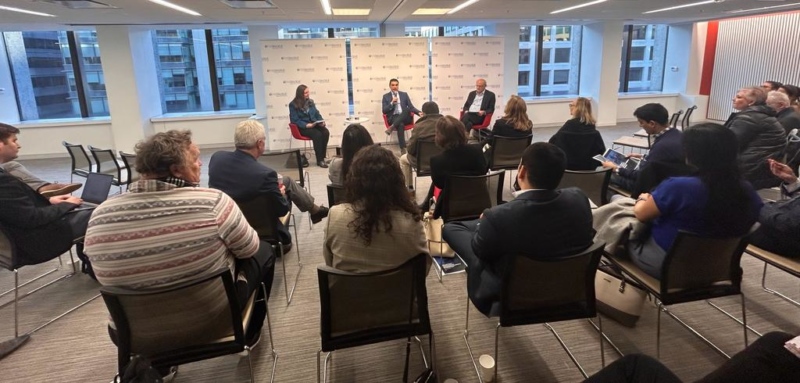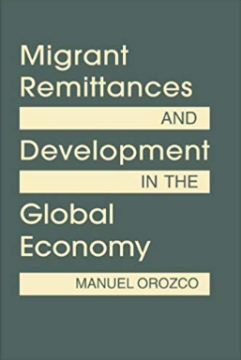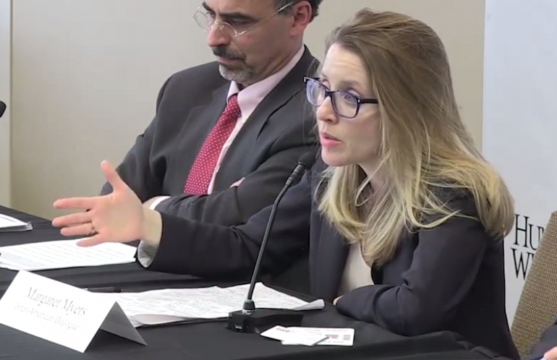The “Other” Latin America
The formal launching of CELAC revealed the strength of regionalism in Latin America.
The democratic backsliding of Nicaragua, whose trajectory dates back several years - at least since 2018 - deepened in 2021 with its regime carrying out a systematic effort to criminalize democracy. This represents one of the greatest challenges for the Latin American and Caribbean region. The authoritarian drift has resulted in a society that lives in fear, besieged, and without hope. On Thursday, February 9th, however, the Ortega-Murillo government released 222 political prisoners who were illegally detained due to their opposition and their work promoting human rights and democracy. While the release of these political prisoners was a cause for celebration, several concerns and doubts remain that need to be addressed, as Daniel Ortega and Rosario Murillo continue to violate civil liberties and constitutional rights. To discuss the implications of this watershed moment, the Inter-American Dialogue hosted a hybrid event titled “Between Radicalization and Prospects for Change in Nicaragua” on February 10, 2023.
As part of his welcoming remarks, the director of the Dialogue’s Migration, Remittances, and Development Program, Manuel Orozco, asked the panelists to share their takes on the expulsion of these prisoners from Nicaragua and to share their insights as to what that action represents - if it could create an opening for dialogue or continued radicalization of the regime. He also asked what it means for US foreign policy in terms of its approach towards Nicaragua.
The director and editor of Confidencial magazine, Carlos Fernando Chamorro, shared his assessment by mentioning that the decision to release the prisoners marked the end of torture for many, but not for all since more than 30 people are still in prison. He mentioned that this could be a turning point, and how it represents a major step in the direction of recovering freedom but expressed that if there is no significant change in the conditions in which repression continues to be exercised in Nicaragua. Chamorro believes the situation can become worse before it gets better.
He moved on to talk about the media and freedom of the press and his work as a journalist in Confidencial, and the importance of the work of the media in exile as the last reserve of freedom in a country in which all other freedoms have been suppressed. Chamorro said this is his second time living exiled in Costa Rica, with an arrest warrant in Nicaragua for a fabricated criminal accusation.
Chamorro analyzed the regime’s forced closure of more than 40 local radio and television stations, and how in the four years of the current socio-political crisis, from April of 2018 until now, Nicaragua has systematically attacked the press. He confirmed that more than 3,000 non-profit and non-governmental organizations have been shut down and had their legal status revoked, and reiterated that none of this has changed with the release of the 222 political prisoners who were deported and stripped of their nationality and all rights.
Jennie Lincoln, senior advisor for Latin America and the Caribbean at The Carter Center, commented that Nicaragua is the prime case of democratic backsliding in the hemisphere. Ortega has been in power for more than 16 years, which translates to a generation of people that have lived under this current regime that has done nothing but reduce the privileges and human rights of the population and increase repression over time since the social uprising of 2018.
Lincoln also stressed that the release of these political prisoners should be an opportunity that we can leverage to put Nicaragua back on the hemispheric agenda. Also, to view this crisis as a priority so that the international community can revamp the pressure against the regime. This serves as a catalyst to force the dictatorship to address a police state that has been created by the government and pressure them to restore the rights of citizens from across every sector of Nicaraguan Society – the political parties; leaders of business and agriculture; indigenous leaders and school teachers as well as students just like those that reached the United States on February 9th, who were supporting democracy inside their country. "We are at a point in time that will require new strategies, new players, and new people for the restoration of democracy. That is going to have to come from not only within Nicaragua as difficult as that may be but it's going to have to come from the international community," said Lincoln.
Orozco continued the conversation by mentioning that the Nicaraguan economy according to the IMF is described as a captured state, where public officials engage in embezzlement, extortion, and intimidation of the private sector for the purposes of enriching themselves, their families, and their associates. This kleptocracy, along with migration and family remittances, has allowed Nicaragua to increase the revenue of the state. Economic growth in the past few years has been driven mostly by family remittances.
Chamorro added that developing political strategies is important, but not enough, and what is needed is more international to force the regime to restore freedom of reunion, mobilization, and expression by exercising political, diplomatic, and economic pressure in specific areas to make external pressure have an internal impact. Lincoln continued to say she has eternal optimism, especially when things like this happen, and it is safe to believe that there may be a crack inside the regime that we can leverage and see as a symbol for change.
During the Q&A portion of the event, panelists outlined that it would be a terrible error for the international community – whether it is the US, the OAS, Latin American countries, or the European Union, to let Ortega off the hook for releasing the prisoners. Chamorro reiterated that there needs to be growing incremental pressure. A final message from Lincoln was reminding the audience that we must keep looking for innovative ways to help protect the people inside and exiled from Nicaragua. The panel concluded by recognizing the element of hope and the human side of what the release of the prisoners represents.
The formal launching of CELAC revealed the strength of regionalism in Latin America.
How do patterns of migration and remittances differ across regions? What kinds of frameworks support the contributions of remittances to local development?
How will increasing Asian investment in Latin America influence economics and politics in the region?


 Video
Video